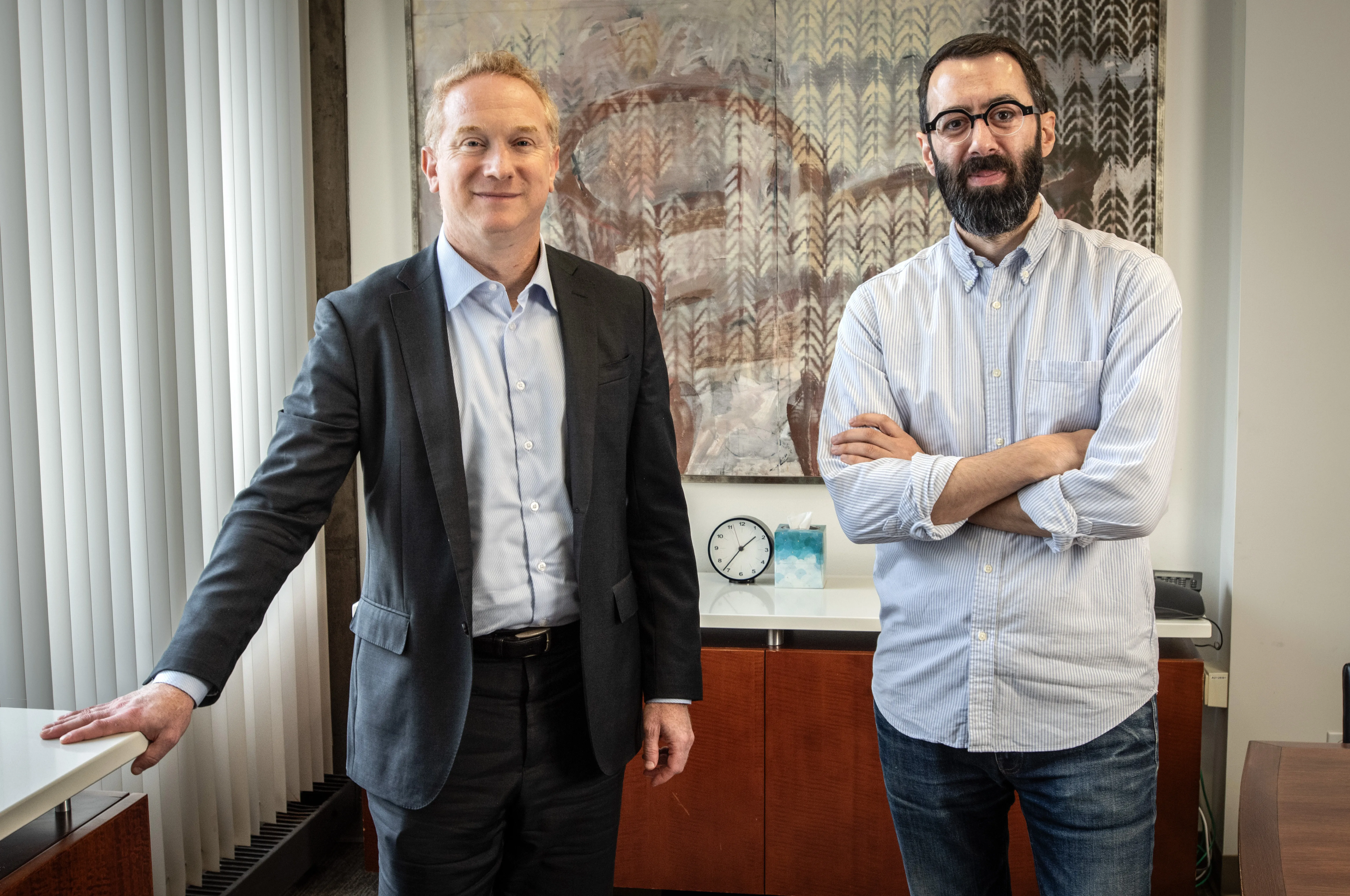What Is UChicago Law’s “Secret Sauce” with Federal Clerkships?

This term, seven University of Chicago Law School graduates are clerking for seven different US Supreme Court justices. And overall, UChicago Law ranks ahead of any other law school for federal clerkship placements. This has been true for four of the last five years, including this year. In terms of SCOTUS placements, the Law School this year is tied with Yale and Harvard for most clerks.
What accounts for this incredible record of success?
We recently posed this question to professors Jonathan Masur and John Rappaport, co-chairs of the Law School’s Clerkship Committee. Reflecting on this question, the pair also discussed trends they are seeing on the horizon with clerkships and shared advice for students interested in this pursuing this career path. Their joint responses follow.
What makes the University of Chicago Law School one of the nation’s top feeder schools for federal clerkships?
We wish that we on the clerkship committee could take credit! But mostly our success in sending students to clerkships stems from the fact that we admit amazing students, and their qualities shine through in their applications. However, there are some structural aspects of the school that matter as well. We teach real law classes, and we teach them rigorously, so all of our graduates have learned a lot of law. And we have real grades, with a mandatory median and no grade inflation, so our students’ transcripts mean something, and judges can see exactly how our students have performed. All of that matters a great deal in a competitive clerkship market.
Our alumni have an extraordinary track record in securing prestigious US Supreme Court clerkships. Any insights on why UChicago Law grads have done so well landing positions?
In part it’s simply that they’re fabulous students and can prove it, as we mentioned above. It’s also likely due in part to the fact that our school prizes and practices rigorous debate about the law. That means that our students are well-prepared for the sharp legal give-and-take that’s characteristic of Supreme Court interviews. They’re not fazed when their arguments are tested by smart interviewers who might disagree with them, because they’ve spent three years preparing for those tests.
We also want to dispel one myth about that track record. The myth is that the students of ours who are landing Supreme Court clerkships are all conservative, and that only conservative UChicago Law students can land Supreme Court clerkships. Nothing could be further from the truth. This year alone we have alums clerking for Justices Jackson and Sotomayor, and another alum has already accepted a clerkship with Justice Kagan for next year. It doesn’t matter what your ideology or politics are—if you’re interested in clerking on the Supreme Court, UChicago Law is the place for you.
What trends do you see in judicial clerkships, and how is the Law School helping students adapt to them?
The first trend is that more students are clerking twice, instead of once. This isn’t entirely new—Jonathan clerked twice, and John clerked three times!—but it’s become more common over the years. The second trend is that more and more judges are preferring to hire students with meaningful work experience, either post-law school or post-college.
Both of these trends can be challenging for students who are looking to plan their post-law school careers and organize their lives. We work one-on-one with students to find out what they’re looking for, how a clerkship fits within their life plans and career goals, and how we can help them land the clerkships that will be best for them.
What advice do you give students about building strong clerkship applications?
A strong clerkship application has a few key components. First, a broad selection of bread-and-butter classes that demonstrate analytical proficiency and legal literacy. Second, strong writing skills, exhibited through a polished writing sample. This could be a piece of writing from a class, a journal, or a summer job, for example. Third, recommendation letters, ideally from faculty who know you well. All that said, our mantra, and our experience, is that there’s a clerkship out there for any University of Chicago Law School student who’s committed to getting one, and students shouldn’t count themselves out on these or any other grounds!
What resources should students seek out if they are interested in pursuing clerkships?
The Office of Career Services provides a slew of programming about all aspects of the clerkship process, starting from the basic questions of what a clerkship is and why a student might want one. They broadcast clerkship opportunities and meet with students individually to develop application strategies, review application materials, and practice interviewing skills. All of this is supported by the mentorship of faculty, most of whom have clerked themselves and are eager to help students gain that same experience.
How does the Clerkship Committee work to help students?
To begin with, the small size of the school (and the comparatively large size of the Clerkship Committee) means that at least one person on the Clerkship Committee will have taught every single student in the class during 1L year. So, by the time a student starts applying for clerkships, we already know that student, and the chances are good that a member of the Clerkship Committee has already talked with them about their interest in clerking and how to land a clerkship they’d be excited about. From that point, we will often meet one-on-one with students to understand what they’re looking for and strategize about how to best present themselves as a strong applicant. And then we do a huge amount of outreach to judges, making sure that they have our applicants on their radar screens!
How do faculty members support students in the clerkship process?
One of the great things about the University of Chicago Law School is the accessibility of its faculty to students. Faculty go to great lengths to get to know students and support them not only in their classes, but also in their career pursuits, very much including clerkships. And because we know our students well, we’re able to write strong letters of recommendation and effectively tap into our professional networks on their behalf.
What role does the Law School’s strong clerkship culture play in shaping professional pathways?
One of the many great things about clerking is that it unlocks a lot of doors. If you’ve clerked, it becomes much easier to move from a firm to the government, or to public interest, or the reverse. Clerking gives our students so many more options, not just at the beginning of their careers but later on as well. This enables our graduates to try out different types of law and different types of legal institutions until they find the one that’s perfect for them. We think this makes UChicago Law grads better lawyers and also happier lawyers, even many years after graduation.
What kind of feedback have you received from alumni who have clerked?
Every year we host a clerkship reception and invite alumni who’ve clerked to come and mingle with current students who are interested in clerking. Categorically, the alumni rave about their experiences. Many tell us that their clerkships bought them credibility with their employers, who entrust them with greater responsibilities than their peers who didn’t clerk.
How do you see UChicago Law continuing to strengthen its position as a top clerkship feeder school in the years ahead?
The hard work we’ve invested in clerkships is paying off. We’ve created a virtuous cycle, as judges’ positive experiences with our students open up opportunities for the next cohort. This is not to say we’ve become complacent, though! We are constantly revising our programming and strategies to encourage students to clerk and help them lock down good placements.
Related:
Nine Clerks for Nine Justices in 2021-2022, Marking New Alumni Clerkship Record at the Supreme Court
